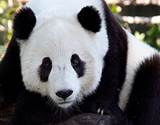题目内容
Giant pandas-Tuan Tuan and Yuan Yuan, offered by the Chinese mainland, have_______ their new home in Taipei Zoo.
A.appealed to B.agreed to C.applied to D.adapted to
D

 星级口算天天练系列答案
星级口算天天练系列答案 芒果教辅达标测试卷系列答案
芒果教辅达标测试卷系列答案Zoos divide opinion : there are those who think it is cruel to keep animals locked up while others believe zoos are essential for the survival of endangered species.
To argue that zoos imprison animals is to misunderstand what zoos are about. Without zoos many of the creatures we love and admire would no longer exist. Every single day,over one hundred animal species vanish. Scientists predict that as early as 2050 one quarter of the Earth’s species will become extinct.
Some animals are in danger because they are hunted. Alarmingly, the population of tigers has already fallen by ninety-five percent. Other species are in danger because of a lack of food. For example, there are fewer than 1300 giant pandas left in the wild.
Zoos have special breeding programmes to help those animals at risk. These breeding programmes are proving extremely successful. As Irene Shapiro from Zoo and Wildlife Support says, “the Puerto Rican Parrot has grown in numbers from just thirteen to about eighty-five and the Golden Lion Tamarin Monkey, which has almost ceased to exist twenty years ago, has been reintroduced back into the wild. ”
Unfortunately, not everyone understands this important role zoos play. For example, Brian Featherstone from the Anti-Zoo Forum says, “I can’t believe we take animals from the wild and put them in cages for the entertainment of the public! We should view them on film or TV in their natural environment.,’
However, this misses the point. A zoo does more than display animals to the public. It ensures their survival. Without zoos you would not be able to see many of these animals on TV or anywhere else!
【小题1】What’s the writer’s attitude towards zoos?
| A.He shows no opinion either for or against them. |
| B.He thinks that they are unnecessary and cruel. |
| C.He believes they play an important environmental role. |
| D.He expresses a desire that more of them be built. |
| A.remain | B.disappear | C.become rarer | D.get killed |
| A.will rise by 5% next year | B.is relatively stable |
| C.is 95% smaller than in the past | D.has fallen to 95% |
| A.are too expensive to run | B.put animals in danger |
| C.do not provide enough food | D.keep animals locked up |
| A.make a lot of money | B.entertain visitors |
| C.ensure animals’ survival | D.educate the public |
With the development of society and economy, animals and their habitats are getting pushed aside as households decrease in size and increase in number.
Small numbers of people per household on average use more energy and goods per person. Greater numbers of households require more natural resources for construction. The possible result of this problem may be insufficient natural resources to meet consumer demand without endangering habitats important to biodiversity.
Personal freedom and social choice may come at huge environmental cost. Direct costs include visible damage to animal habitats and plant life. Indirect costs include the release of more greenhouse gases.
The effects of such “personal freedom and social choice” have already surfaced in south-west China’s Wolong Nature Reserve. In Wolong, they found that a reduced average household size was directly tied to an increase in homes, and thus an increase in the amount of firewood consumed for cooking and heating. The rise in wood fuel use has contributed to disappearance of forests and to the loss of habitats for giant pandas.
Curious about whether other parts of the world were experiencing similar phenomena, they got the support of a team of researchers including Stanford’s Paul Ehrlich, well-known for his population studies, to find out the household dynamics in 141 countries between 1985 and 2000. Their study proved that the difficult choice of Wolong is part of a global trend.
In the 76 countries considered biodiversity “hotspots”, such as the United States, Brazil, Australia, and Kenya, the number of households grew by 3.1% every year, while the population increased just 1.8%. Meanwhile, the number of people per home dropped from 4.7 to 4.0. The decline in household size has resulted in 155 million additional households in hotspot countries, almost always limiting biodiversity.
In the 10 non-hotspot countries — those without high-density areas of animal and plant species — similar results were found, though on a lesser scale. Even in countries experiencing population decline, such as New Zealand, the number of households still increased because of a reduction in household size.
【小题1】What does the underlined word “insufficient” mean?
| A.Plenty of. | B.Not enough. | C.Abundant. | D.Little. |
| A.is facing the same threat as many other parts of the world |
| B.sets a good example in protecting animals |
| C.is a place where giant pandas and their habitats are not affected |
| D.is a place where animals and their habitats are seriously damaged |
| A.Biodiversity is better kept in countries with smaller populations. |
| B.Biodiversity is better kept in hotspot countries. |
| C.The threat to nature from reduction in household size is a worldwide problem. |
| D.Both hotspot countries and non-hotspot countries face the threat of the same scale. |
| A.Reduced household size leads to an increase in household number. |
| B.Modern homes consume more natural resources. |
| C.How to meet consumer demand without endangering animals and their habitats. |
| D.Reduction in household size as well as increase in household number threatens nature. |
Mandara seemed to know something big was about to happen. So she let out a yell, caught hold of her 2-year-old daughter Kibibi and climbed up into a tree. She lives at the National Zoo in Washington, D.C.
And on Tuesday, August 23rd, witnesses say she seemed to sense the big earthquake that shook much of the East Coast before any humans knew what was going on. And she’s not the only one. In the moments before the quake, an orangutan (猩猩) let out a loud call and then climbed to the top of her shelter.
“It’s very different from their normal call,” said Brandie Smith, the zookeeper. “The lemurs (monkey-like animals of Madagascar) will sound an alarm call if they see or hear something highly unusual.”
But you can’t see or hear an earthquake 15 minutes before it happens, can you? Maybe you can — if you’re an animal. “Animals can hear above and below our range of hearing,” said Brandie Smith. “That’s part of their special abilities. They’re more sensitive to the environment, which is how they survive.”
Primates weren’t the only animals that seemed to sense the quake before it happened. One of the elephants made a warning sound. And a huge lizard (蜥蜴) ran quickly for cover. The flamingoes (a kind of bird) gathered before the quake and stayed together until the shaking stopped.
So what kind of vibrations were the animals picking up in the moments before the quake? Scientist Susan Hough says earthquakes produce two types of waves — a weak “P” wave and then a much stronger “S” wave. The “P” stands for “primary”. And the “S” stands for “secondary”. She said she thinks the “P” wave might be what set the animals off.
Not all the animals behaved unusually before the quake. For example, Smith says the zoo’s giant pandas didn’t jump up until the shaking actually began. But many of the other animals seemed to know something was coming before it happened. “I’m not surprised at all,” Smith said.
【小题1】Why did Mandara act strangely one day?
| A.Because it sensed something unusual would happen. |
| B.Because its daughter Kibibi was injured. |
| C.Because it heard an orangutan let out a loud call. |
| D.Because an earthquake had happened. |
| A.many animals’ hearing is sharp |
| B.earthquakes produce two types of waves |
| C.primates usually gather together before a quake |
| D.humans can also develop the ability to sense a quake |
| A.vibration | B.shelter | C.quake | D.range |
| A.A giant panda. | B.A flamingo. | C.A lemur. | D.A lizard. |
| A.How animals survive a quake. | B.How animals differ from humans. |
| C.How animals behave before a quake. | D.How animals protect their young in a quake. |
